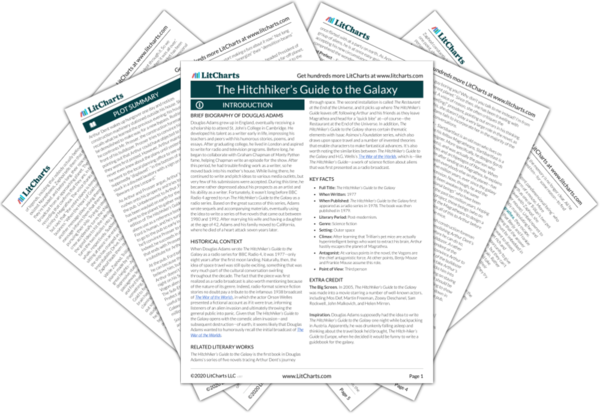“
Arthur!”
Ford says. “This is fantastic! We’ve been picked up by a ship powered by the Infinite Improbability Drive!” He then goes on to explain that he has heard rumors of this device but has always assumed it didn’t really exist. Despite his enthusiasm, though, Arthur has a hard time paying attention, for he’s busy trying to keep an “infinite amount of monkeys” from entering the room to discuss their script for
Hamlet.
